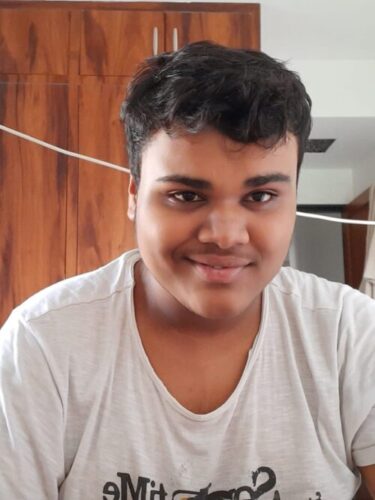INDIA. Nagpur, Maharashtra. 15-year-old, Vansh Bhondekar, and his two classmates, Sanket Daduria and Shashank Daduria, created the plans for a trash remover for outer space. This project became one of six finalists in the AXIS Junior Scientist Aeronautical Competition in India. The nonprofit organization’s mission is to bring together Indian school children and help them learn about themselves and science.
AXIS Junior Scientist Aeronautical Competition. This contest considers participants throughout India who have created plans to solve a complex problem either in the oceans or in space. In 2020 there were 26 different teams that utilized their young talent to create global solutions. Vansh concluded his presentation with saying that “this procedure is … authentic, feasible, sustainable, and can be scaled from the smallest to largest level.”
Student team designs solar satellite to remove space debris. Vansh and his partners created a solar powered satellite that would remove debris and garbage from Earth’s orbit. “We will be using satellites that will consist [of] a main body of cubical shape with solar panel[s] attached,” Vansh stated in his presentation. Most space trash consists of parts of aluminum satellites. The plans were created to change the angle and speed of movement in order to push the debris out of orbit. In addition, the satellite would be able to reduce the size of debris by using a laser. Utilizing satellite data, this project can predict which path has the most debris to be relocated. Vansh hypothesizes that in each orbit, the satellite would be able to remove three to four metric tons of debris.
Exam failure results in award winning project. Vansh, a lover of chemistry, physics, and mathematics, is currently in tenth standard and recently completed Math A Maze Exams. Vansh failed his exam so his parents proposed that he enter a contest for space design. This suggestion led him to the AXIS Junior Scientist Competition where they proceeded to become finalists.
Vansh hopes to attend the University of Pennsylvania and Stanford. His life consists primarily of attending school and studying for his classes. Despite his award in aerospace engineering through this project, Vansh does not wish to pursue studies in this field. He stays up most nights learning as much as possible about physics and chemistry.
Sanket wishes to study at the Indian Institute of Technology for Aeronautical Design and his brother would also like to attend the Indian Institute of Technology for Space Craft Engineering. After these degrees, they hope to continue their university education abroad. Both boys have taken exams through the Science Olympiad Foundation where they won gold and silver medals for their scores.

